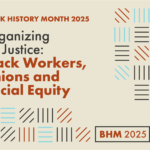Racism in Canada? Yes, it’s still rampant. And we need a government that will commit to working to end it.
On February 24, Quebec court Judge Eliana Marengo told a young Muslim woman named Rania El Alloul that she would not hear her case unless she removed her headscarf.
We’ll be thinking of Rania El Alloul and other Canadian Muslims facing discrimination in their day-to-day lives when we commemorate the United Nations (UN) International Day for the Elimination of Racism on March 21.
We’ll also be remembering how systemic racism has led to epidemic levels of poverty for Indigenous women and girls, meaning a lack of secure housing, an absence of economic opportunities and limited access to justice.
We’ll remember how on March 6, the United Nations Committee on the Elimination of Discrimination against Women (CEDAW) concluded that Canada’s ongoing failure to address the extreme violence against Aboriginal women and girls constitutes a “grave violation” of their human rights.
We’ll remember that black males living in Toronto are three times more likely to be stopped and asked for identification by police. And we’ll remember that employers are about 40 percent more likely to interview a job applicant with an English sounding name.
How are we helping to end racism?
- The labour movement is supporting communities that face discrimination. After 9/11 for example, we worked with Muslim communities to fight widespread Islamophobia.
- We speak out when racism happens – such as when migrant workers are targeted for deportation, when Aboriginal or racialized youth are shot by police, or when racism is behind the denial of housing.
- We bargain anti-discrimination and harassment language in collective agreements, helping to ensure that hiring is fair and that workplaces are free of discrimination.
- We work with governments at all levels for stronger employment equity legislation.
- We use education to fight racism, training our leadership and membership on how to deal with harassment and individual and systemic racism.
Our government must do more to help end racism.
The CLC is calling on the federal government to face up to the reality of racism in Canada today, by acknowledging its own role in sustaining and promoting systemic and overt discrimination. Here are three ways the government can play a constructive role in ending both systemic and overt racism:
The UN Committee on the Elimination of Discrimination against Women has joined the call by Aboriginal women and Canadians across the country for a national inquiry into missing and murdered Aboriginal women. It’s time the government listened.
The government must stop using rhetoric and fear mongering that targets Muslim and other racialized communities. The use of terms like “jihadists” and “radical Islam” is irresponsible and sews hatred. This must stop.
The government must meet its international obligations by reporting to the UN Committee on the Elimination of Racial Discrimination (CERD). Canada has never met its obligation to report to this committee.
Challenge the candidates in the next federal election.
When candidates come asking for your vote in the next election, be sure to ask how they feel about racism in Canada and if they’ll commit to taking those first three steps to help eliminate racism in Canada.
Ahead of the election, the labour movement will be challenging all political parties to outline how they will work to eliminate both systemic and overt racial discrimination faced by Aboriginal and racialized communities in Canada.
Quick facts on racism in Canada today:
- 50 percent of First Nations children live in poverty compared to 17 percent for other Canadians.
- Aboriginal workers earn an average of $19,000 compared to $33,000 for other Canadians.
- The infant mortality rate is one and half times higher for First Nations than other Canadians.
- The average life expectancy for Aboriginal women and men is five and nine years less, respectively, than other Canadians.
- Black males living in Toronto are three times more likely to be stopped and asked for identification by police.
- There were 1,401 reported hate crimes in Canada in 2010.
- Employers are about 40 percent more likely to interview a job applicant with an English-sounding name despite identical education, skills and experience.
- In 2011, the unemployment rate for visible minority workers was 9.9 percent compared to 7.3 percent for non-racialized workers.
- Racialized Canadians also earn an average of 81 cents to the dollar compared to other Canadians.
- 55 percent of Canadians are satisfied that we have overcome racial discrimination.





